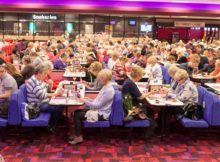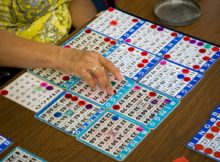Betting and Gaming Act 1960
The Betting and Gaming Act 1960 was legislation passed in 1960 that came into effect on January 1st 1961. It was passed to legalise more forms of gambling in the United Kingdom and was based on recommendations that the Royal Commission made on betting, lotteries and gaming.

Gambling In the 20th Century
Gambling was popular in the UK for centuries but became a staple in the 20th century for the working class. The process of getting results from the racetrack became much faster with the introduction of telegraphic results. This meant that gamblers could place multiple bets a day on the races as they knew quickly whether they had won or lost.
Much of the gambling during this time took place inside pubs. This is where bookmakers would collect bets, pay any winners and hire runners to distribute information on odds. While this was happening, watchmen were placed outside to alert bookmakers of any nearby police.
This horrified much of the upper classes and so the Street Betting Act of 1906 was passed to try and curb it. However, it was immensely popular amongst players, they supported the bookmakers for providing entertainment and it was hard to enforce the law as policemen would either take bribes or look the other way.
At first, the Labour Party were not supportive of off-track betting on horses. However, this changed as more unions and working-class people became involved in the party. The mindset was that there should not be rules for the rich and a different set for the poor when it came to gambling.
World War II
Leisure activities became much more restricted during World War II and while the number of people frequenting gambling venues dropped, the volume of gambling was still very high. There were attempts to shut down gambling during this time, however, the government recognised that it was a much needed outlet for the public to enjoy some stress-free time as there was not much else to do. Greyhound racing continued to be extremely popular, there were more illegal bookmakers than ever before and many gamblers bet on Irish horseracing as it had not been curbed there.
When the Betting and Gaming Act 1960 was passed, this legalised much of the gambling, including bingo.
Why Was the Betting and Gaming Act 1960 Introduced?
The main goal of the Betting and Gaming Act 1960 was to make gambling more open, so fewer people were playing it on the streets. This helped to get rid of runners that were employed by bookmakers to collect money from gamblers. Private casinos were now allowed to operate and the National Lottery was then introduced by the government in 1994.
Laws such as this one that reduced the criminality of gambling were mainly introduced due to the political forces that once opposed it becoming more lenient.
The Gambling Act 2005
The Betting and Gaming Act 1960 was replaced by the Gambling Act of 2005. This was a big improvement on the previous legislation as gambling had changed drastically since the introduction of this legislation 45 years ago.
Many of the more excessive gambling restrictions were removed and it concentrated on removing illegal gambling activities from the UK and ensuring underage players could not access gambling. Another main focus was to make the gambling world, both on land and online, safer and have more responsible gambling processes in place.
The UK Gambling Commission was born out of the 2005 Gambling Act. It has the authority to award UK gambling licensees, ensure casinos are following the law and promoting responsible gambling, protect children from gambling and ensure gambling is not being used to cover up criminal activity such as fraud.
While the Betting and Gaming Act 1990 is no longer in force, the Gambling Act 2005 was a much-needed update due to the changes in gambling behaviour, accessibility and technology. Its promotion of responsible gambling, licensed casino and online casino regulation has made the gambling industry much safer for everyone.
Last updated: Jan 24, 2023



